New month, new newsletter name. Not that a new name for my newsletter is going to be a consistent habit, but felt like the switch was needed. I realized that these newsletters are like my personal journal where I can brain-dump and reflect on some of the most important lessons I’ve learnt every single month with the 3-2-1 prompt I’ve set up for myself.
People are usually secretive about their diaries and journals. But, I enjoy having people keep up with my personal growth journey, as every month has something new in-store. And, I hope that you can learn from 3 of my most significant lessons and 2 content recommendations along with being able to walk away with one question to get you thinking.
Welcome or welcome back to my monthly newsletter! I’m Priyal — a 16 year old quantum computing enthusiast who’s ambition revolves around working on solving complex problems to meaningfully contribute to the world.
3 Lessons From This Month 💭
1. Make Compound Investments in Yourself
Last month, I was honest with myself about not dedicating time to my goals and to the things that I believe hold value. This month, I listened to January me and acted upon my “regrets” so that I could make a change within my personal growth journey. Going into this, I knew it was easy to talk about how I haven’t spent time working on the things I want to work on, so I made it my goal to actually take action.
Having one top goal every single day made this achievable. Identifying one thing I wanted to work on or create for myself, and not just to fit into guidelines was the key to making sure I worked on things that mattered to me. And, I did that. This didn’t mean slacking off on my non negotiables, but structuring my days to dedicate time towards the things I was originally ‘too busy’ for. All while being realistic for myself.
Not only does having that ‘top goal’ help you realize your priorities and where you want to dedicate those 86,400 seconds in a day, it also helps you understand the concept of compounding and its value. I’ve wanted to build technical depth within my quantum computing projects, instead of just following tutorials and calling it a day. Of course, I knew that this was a compound investment and short-term but that it also requires time.
Although, by learning something new every single day and dedicating even an hour to just learning the math, coding or writing a bit about the theory behind my code, I was able to build that consistency. Even if it meant spending the first half of my project just watching explanation videos on math, instead of actually building or writing—which is my favourite part. That consistency and understanding of the fact that I need to get over the ‘beginning’ that has minimal instant gratification is what helped me make progress in achieving my long-term goal.
I was able to build a project and content that I felt like I had technical depth within, and one where I truly understood what I was doing. That too, within a space of quantum computing I swore I’d never been interested in—which is funny, cause I had a smile on my face the entire time while writing this article.
I worked on learning about how Variational Quantum Eigensolvers can help us find the ground-state of a molecule, which can greatly enhance our molecular simulation for drug development. Drug discovery is huge, and it’s exciting to see how quantum computing can accelerate the time and decrease the monetary value behind developing drugs. Basically, changing the status quo drastically. The impact is huge.
The same idea of compounding and seeking small steps applied to my second quantum computing project that I worked on in February. Especially as I spent ~2 weeks figuring out a bug in my code where I built a Quanvolutional Neural Network to classify disease-affected and normal medical images. But, I’m currently working on wrapping that project up so more on that next month ;) Overall, the main takeaway is that making compound investments in yourself can help you exponentially grow and actually achieve your goals.
Taking Small, Consistent Steps Towards a Goal > Seeking Immediate and Drastic Change
2. Question Everything.
It’s one thing to read a 23-page report on Starbucks that’s very content-heavy. It’s another thing to actually understanding something. The key? Question everything. That’s what’ll help you actually conceptualize how to determine a solution to an unsolved problem.
In February, at a The Knowledge Society session, we collectively had to figure out the solutions to a Harvard Business Case Study. That’s right. Harvard. It went in-depth into how Howard Schultz (CEO of Starbucks) had the ambitious goal to open up 500 Starbucks stores in one year in China. And, we had to find out how. I’m sure you can imagine the chaos as ambitious teenagers are trying to find the answer to an extremely complex scenario, without the ‘Harvard training’ you’d usually need.
The first-half of trying to get to the answer looked and was very hectic, as we couldn’t figure out what area to focus on. What could the answer remotely be related to? We were jumping from questioning Starbucks’ competitors to their prices in China. But, as we got into the flow of carefully understanding every word written there and its relevance to the problem statement, we ended up receiving a little bit of direction to move forward.
The way to find an answer is to ask questions.
Seriously, if it wasn’t for us questioning why a competitor's strategy was working or questioning the purpose of the exhibits, we probably would have been lost for a while. But, the case-study wasn’t a one-time event that I check-boxed off. I learnt how to strategically work with problems that don’t have a definitive solution in front of me, or any hints to provide me with some direction—which is a skill needed in the real world.
Being curious and asking questions to solve problems = Your own personal tool to discover solutions!
3. Invest Time Into Relationships Within Your Life
Health, wealth and relationships; probably 3 pillars of life that you’ve heard about before. Many people believe that these are the fundamentals behind ‘happiness’ in life, and honestly, pretty right about that. Your goals should usually reflect these 3 in some way shape or form.
I’ve always been a peoples person - but over the last couple of months have failed to dedicate time towards those around. And if I was dedicating time, I wasn’t actually present in the moment and my mind was usually wandering towards thinking about work plus my to-do list. I knew this was a problem back in December when I recorded a 2022 reflection podcast episode with a couple of my friends and I mentioned that it was a goal of mine to make a change in that.
So, over the first couple of months in 2022, I’ve been intentional about being present so that I can maintain high quality relationships with my friends and family. Automatically, intentionality helps. I touched on this a bit in my January newsletter too but when your mind is actively thinking about a specific thing you want to do, you most likely won’t ignore it. In my case, being intentional about this one little habit was like a reminder in my head to redirect my thoughts into the conversation and not what I’m doing tomorrow at 4:45pm. Also, even just taking small actions like setting ‘no device at the table’ rules for yourself helps you from distracting yourself when spending time with someone.

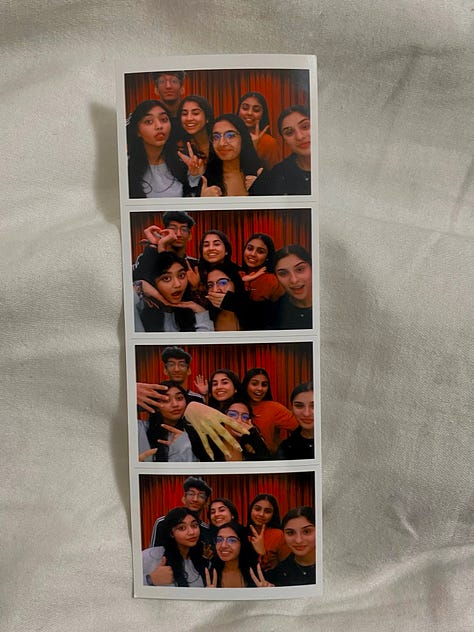
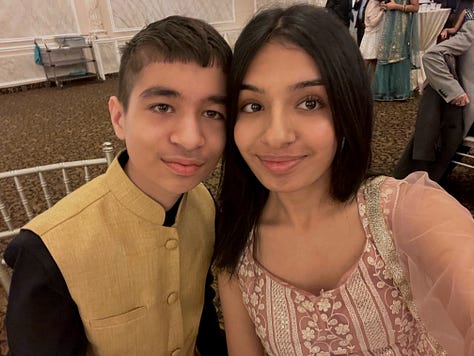
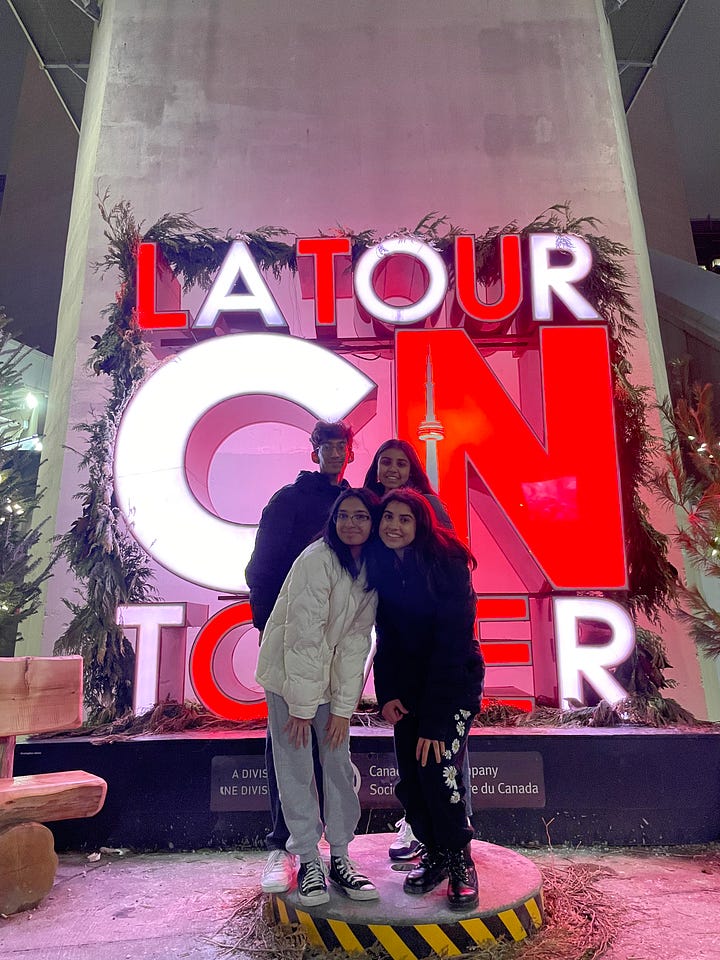
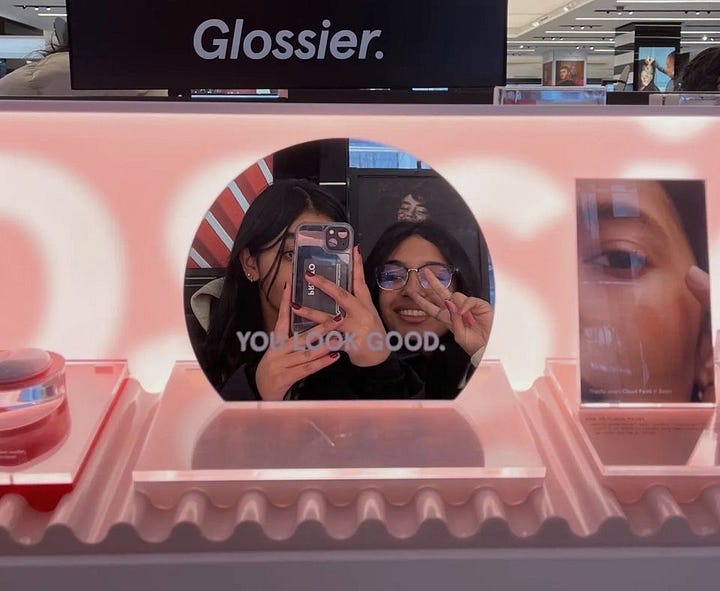
2 New Content Recommendations 📖
1. Continuous Improvement: How It Works and How to Master It
On the topic of compounding, one of my favourite James Clear blogs is him talking about the value of continuous improvement, but also how you can master it.
This idea of getting 1% better every single day is truly powerful. Yes, 1% isn’t a lot at first thought. It’s not a noticeable improvement (right now) but the effect of compounding overtime can create that one percent positive change into you becoming a whole new person.
One of my favourite ways to do this, which is also outlined in the blog linked, is to measure backwards. Instead of looking forward and predicting our futures, make decisions based on what’s already happened
An Example: “Oh, you squatted 250 pounds for 5 sets of 5 reps last week? Give 255 pounds a try this week.”
2. The Knowledge Project: Mastering Indistraction with Nir Eyal
The Knowledge Project is a classic and one of my favourite podcasts, which is something early readers might remember when I first discovered it. But, recently listened to a new episode that I really loved with Nir Eyal going over how to get more done in less time and taking control over not getting distracted with technology. He was honest about his experiences with technology x distractions, and how he led his daughter to believe that whatever was on his screen was more important than their time together.
And, he goes over a lot of tips like using a flip phone (yes, a flip phone) but the main takeaway from here was that distraction and procrastination are forms of inability to deal with emotional discomfort. Mastering handling these internal triggers is how we can train ourselves to not fall victim to scrolling through Twitter for an hour and wasting our ‘work time’ … a small passage from his podcast:
01:07:20
“So for both adults and kids, it's just these four steps, right? So tactics are less important than the strategies. So tactics are what you do. Strategy is why you do it. The strategies are more important. So if you can visualize in your head these two arrows going to the right to the left of traction and distraction and the two arrows point to the center of internal triggers and external triggers. Now you have the visual, the model in your head [to follow].”
But, you should definitely listen to this episode as Nir’s breakdown of internal and external triggers along with traction and distraction hold so much value and can help guide you to optimizing your lifestyle.
1 Question For You 🙋🏻♀️
After reading all about compounding, I want you to be intentional about becoming 1% better as well. I know I’ll continue to do this, you should join me.
Think about areas of your life that you’re currently invested in… are those short-term activities or compound investments? … For the compound investments, what can you do to better that aspect of your life every single day?
Let’s exponentially grow together.
Thank you so much for reading my newsletter. I’m so thankful for each and every single one of you who keeps up with my progress and the supportive community I have around me.
As always, any feedback you have for me is greatly appreciated! See you next month. 🫂
- Priyal

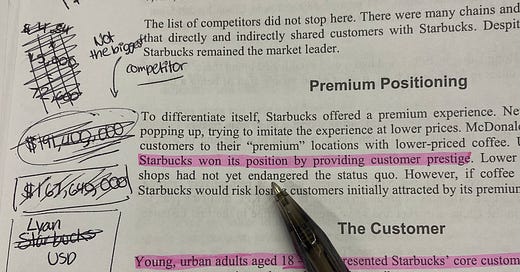


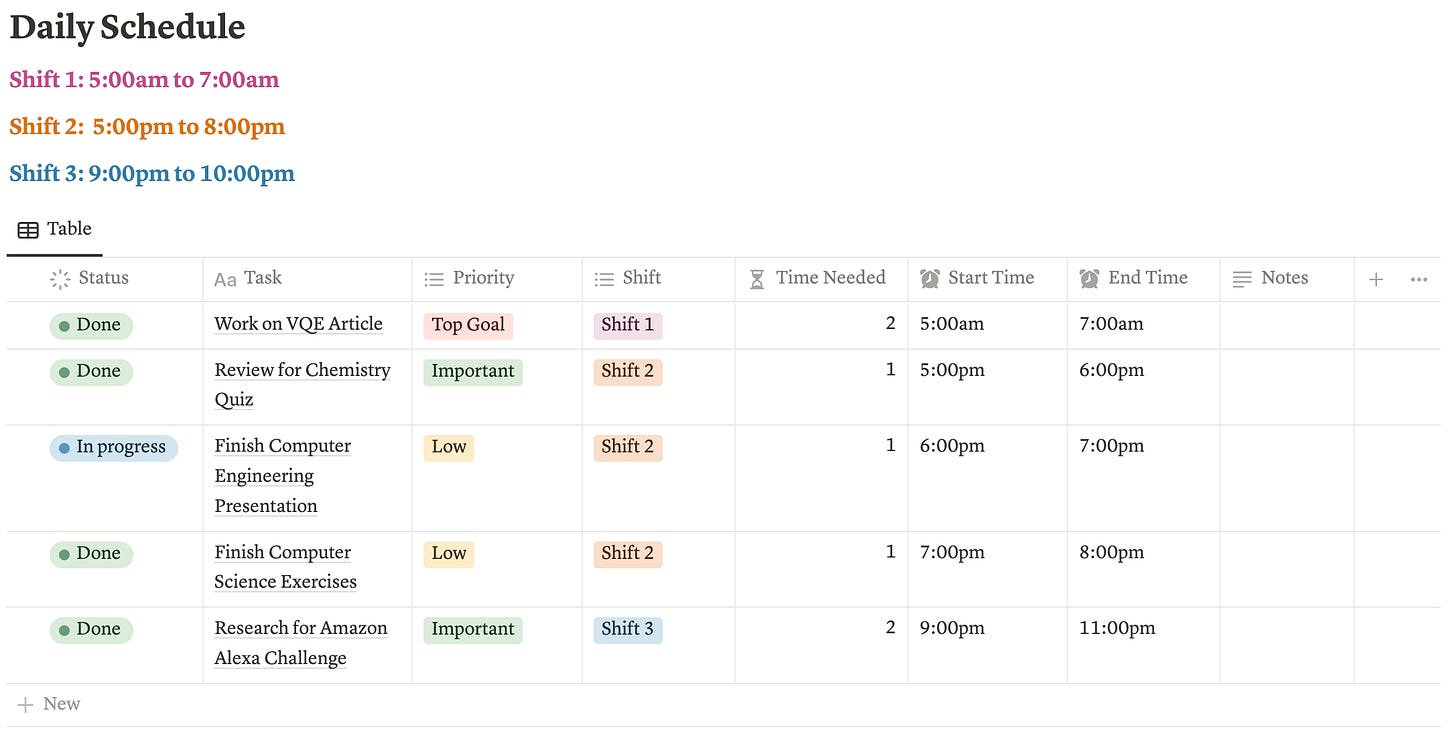


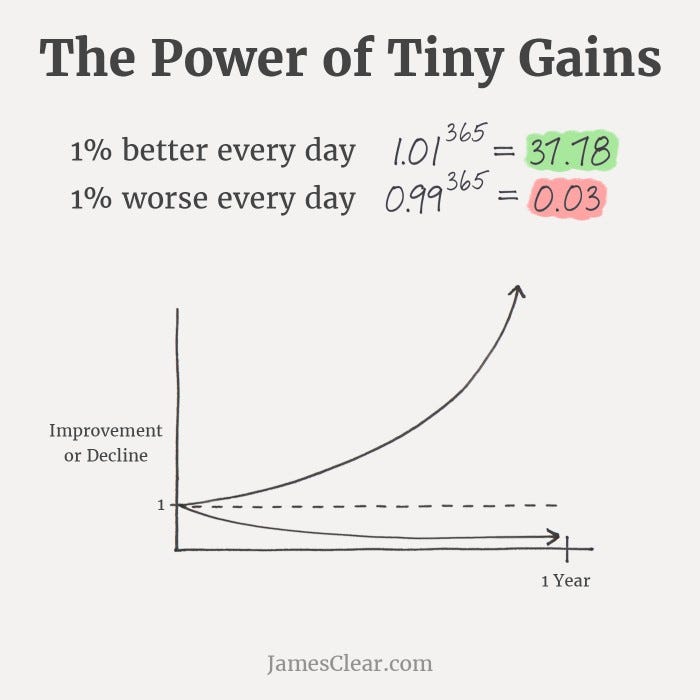
Amazing as always 🙌
That was very insightful. Thanks Priyal! 👍🏾